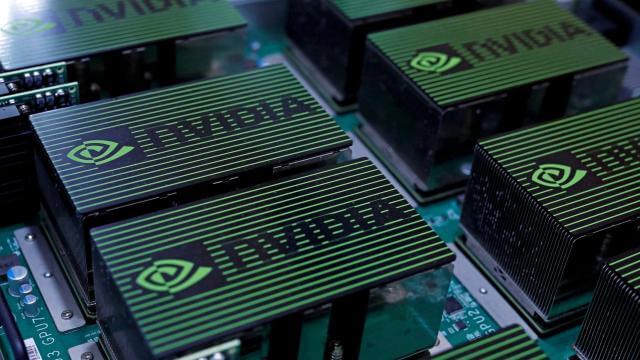On August 24th, Nvidia (NVDA.O) experienced a substantial surge in its stock prices, reaching a remarkable all-time high increase of 6.7%. This surge was prompted by the company’s announcement of a substantial $25 billion stock buyback plan, coupled with its impressive quarterly revenue report fueled by robust demand for its specialized artificial intelligence (AI) chips.
Despite closing with a modest 0.1% uptick at $471.63, the day witnessed Nvidia surpassing expectations from analysts as it disclosed a second-quarter revenue of $13.51 billion post-market closure. Furthermore, the company projected that its revenue would escalate to $16 billion in the subsequent quarter. Throughout the trading session, Nvidia’s stock surged to as high as $502.66, surpassing a prior record set earlier in the same week. Impressively, this year alone, the stock has witnessed an astounding 223% increase, solidifying its position as the first trillion-dollar chip manufacturer.
The technology firm, headquartered in Santa Clara, California, also announced its intention to repurchase $25 billion worth of its own shares, representing one of the most significant planned buyback initiatives witnessed in the past decade. The impact of this announcement reverberated across the market, particularly affecting other chipmakers. The Philadelphia Semiconductor Index (.SOX) experienced a decline of over 3%, with Marvell Technology (MRVL.O), Advanced Micro Devices Inc (AMD.O), and Nvidia’s competitor Intel (INTC.O) all witnessing substantial drops in their stock prices—nearly 7% for Marvell and AMD, and 4.1% for Intel.
While the technology-heavy Nasdaq Composite (.IXIC) initially benefited from Nvidia’s positive momentum, it eventually concluded the day with a 1.87% decrease. According to Michael James, the equity trading managing director at Wedbush Securities, some investors opted to capitalize on profits following the surge triggered by Nvidia’s earnings announcement. He noted that the market seemed to adopt a “sell the news” approach, with many anticipating Nvidia’s report and subsequently selling off as the stock price initially climbed.
This surge in Nvidia’s stock price led to more than 20 brokerages revising their target prices for the company. Particularly bullish forecasts included Elazar Advisors’ target of $1,600 and Rosenblatt Securities’ target of $1,100, as per Refinitiv data. The median target price provided by analysts for the stock nearly doubled to $600 since May, when Nvidia itself predicted a 50% revenue increase for the second quarter.
Tom Plumb, Chief Executive and Lead Portfolio Manager at Plumb Funds—an entity that holds Nvidia shares—highlighted the significance of Nvidia’s statement regarding the substantial adoption of their chips by data centers serving the cloud. This factor, combined with the company’s dominance in AI technologies such as ChatGPT, contributed to the enthusiasm among investors, prompting upward revisions of price targets.
In essence, Nvidia’s recent performance and strategic announcements have propelled its stock to unprecedented heights, solidifying its role in shaping the future of AI-driven technologies and maintaining its position as a key player in the semiconductor industry.





